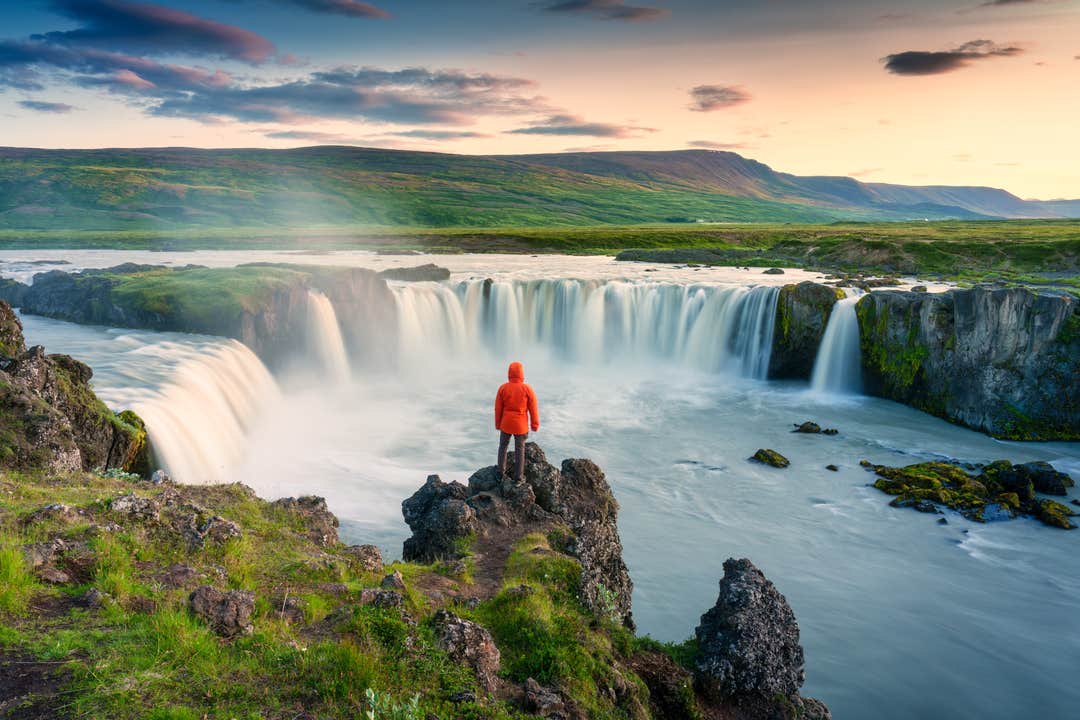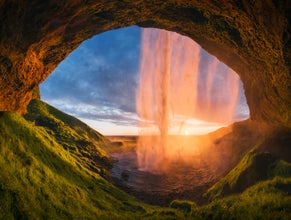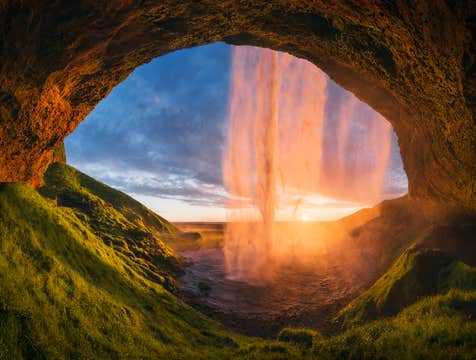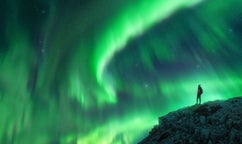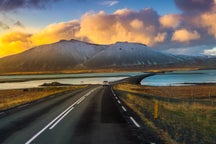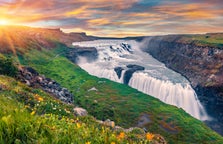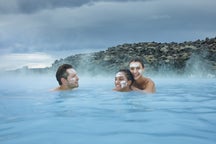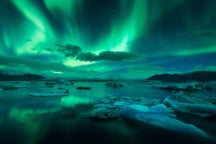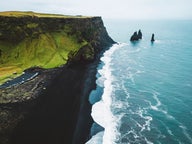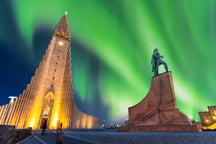Description
Summary
Description
Book this two-week tour of Iceland’s Ring Road and the Westfjords for the ultimate adventure: exploring Iceland’s most famous attractions and its best-kept secrets, all without the hassle of planning! This carefully crafted self-drive itinerary ensures you experience the breathtaking landscapes, charming towns, and hidden gems most travelers miss.
Planning an Iceland trip can be overwhelming, but we’ve done all the hard work for you. You'll receive a detailed itinerary covering every highlight, plus exclusive access to Iceland’s hidden treasures.
The itinerary is designed by local experts to guarantee you don’t miss a thing, from Iceland’s greatest hits to its lesser known wonders. Marvel at thundering waterfalls like Gullfoss and Skogafoss, walk between continents at Thingvellir National Park, and cruise among icebergs in the magical Jokulsarlon Glacier Lagoon. You'll get to explore otherworldly places like the black sand beaches of Reynisfjara and the surreal lava fields of Dimmuborgir.
Plus, you’ll venture into the wild Westfjords, where Arctic foxes roam and hidden hot springs await around every bend, one of the least visited regions in Iceland, where rugged mountains meet dramatic fjords and rare wildlife thrives. Here, you’ll experience the country’s wildest landscapes—far from the crowds—and discover places where puffins nest on sheer cliffs, hot springs bubble beside the sea, and narrow roads wind through untouched beauty.
With hand-selected accommodations in prime locations, you’ll travel in comfort, even in the remote Westfjords. You can customize your accommodation and room selection to suit your preferences. Your entire itinerary can also be tailored with the help of a dedicated travel agent after booking.
You’ll also have full control over your vehicle choice, with a range of car rental options to match your travel style. Budget-conscious travelers can choose a small or economy vehicle, perfect for two people and light travel. If you're after a little more comfort, 4x4 Jeeps, SUVs, and luxury models are also available, offering a smooth ride and high-end features. Traveling with a group or family? Spacious vans are available to ensure everyone has room to relax on the road.
This package takes care of you from arrival to departure, ensuring a stress-free journey. You’ll enjoy the best experiences Iceland has to offer at unbeatable prices, from glacier hikes and ice cave explorations to horseback riding, sea angling, and even snorkeling the continental rift.
These optional excursions are what make your adventure truly one-of-a-kind, whether you want to watch adorable baby puffins taking their first wobbly flights, spot whales in the deep blue waters of the North Atlantic, or even sail between the icebergs of the Jokulsarlon glacier lagoon.
This self-drive tour is available during the summer and early autumn months, when Iceland’s roads are clear and most accessible, especially in more remote areas like the Westfjords. The longer daylight hours and milder weather make it easier—and safer—to enjoy scenic drives, outdoor adventures, and the full range of excursions available throughout the country.
Enjoy complete flexibility: you can cancel for free up to 24 hours before departure and receive a full refund. Plus, our expertly planned itinerary ensures you get the best experience while saving money.
Don’t miss out on this incredible two-week Ring Road journey! Book now to secure your spot and embark on the perfect Icelandic adventure.
